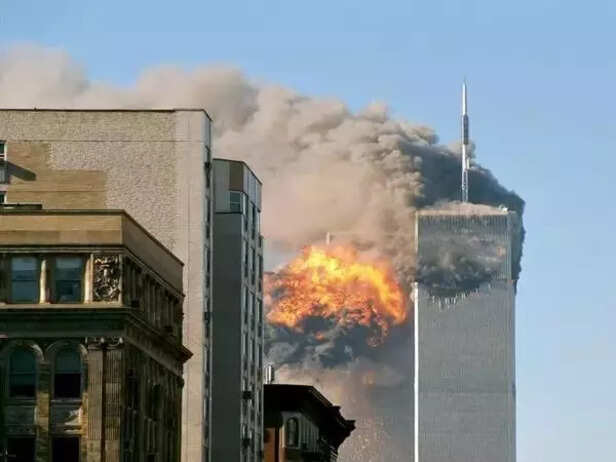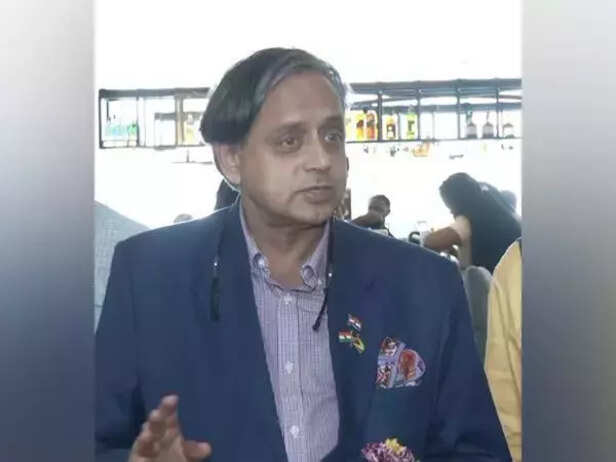One 9/11 Was Enough for America to Launch a Global War (How Many More for India?)
Nidhi | May 26, 2025, 21:17 IST
( Image credit : Times Life Bureau, Timeslife )
While the 9/11 attacks prompted the U.S. to launch a global War on Terror backed by NATO and the UN, India — one of the world’s most terror-affected countries — has faced dozens of deadly attacks with no global military or diplomatic response. This article compares the global reaction to 9/11 with India’s long history of suffering from terrorism — from the 2001 Parliament attack to Pulwama and 26/11. It raises a crucial question: Why is terrorism condemned only selectively?
On September 11, 2001, 19 Al-Qaeda terrorists hijacked four commercial airliners and attacked the United States. In under two hours, 2,977 people died, and the world declared it a tragedy of unprecedented scale. The UN Security Council passed Resolution 1368 within 24 hours, invoking the right of collective self-defense under the UN Charter. NATO invoked Article 5 — for the first and only time in its history — and over 40 countries joined the U.S. in launching a Global War on Terror.
And yet, India — the country that faces the highest volume of cross-border terrorist attacks in the democratic world — has never received this kind of unified global action.
What does it say about the international response to terrorism — when one 9/11 leads to two decades of war, but dozens of major attacks on India barely register beyond condemnation?
 India has been one of the most terror-affected nations in modern history. Since 1947, India has suffered from insurgency, cross-border terrorism, and homegrown extremism. Below is a detailed timeline of some of the most deadly and significant attacks:
India has been one of the most terror-affected nations in modern history. Since 1947, India has suffered from insurgency, cross-border terrorism, and homegrown extremism. Below is a detailed timeline of some of the most deadly and significant attacks:
Total documented terror attacks in India since 1980s: Over 70,000
Estimated deaths: >21,000 civilians and security personnel 

Even after incontrovertible proof of Pakistan’s role in harboring terrorists, including:
One attack on U.S. soil shifted the entire global security architecture. But India — the world’s largest democracy, home to 1.4 billion people — has faced decades of terrorism without a single NATO-backed resolution, without meaningful UN intervention, and without real pressure on the nations behind the violence.
Terrorism has no religion. But apparently, it has geography — and sympathy follows power.
India has not demanded sympathy. It has demanded accountability. And the time has come for the world to recognize this: If the global war on terror excludes the nation that suffers most from terrorism, then it is not global — it is selective.
Explore the latest trends and tips in Health & Fitness, Travel, Life Hacks, Fashion & Beauty, and Relationships at Times Life!
And yet, India — the country that faces the highest volume of cross-border terrorist attacks in the democratic world — has never received this kind of unified global action.
What does it say about the international response to terrorism — when one 9/11 leads to two decades of war, but dozens of major attacks on India barely register beyond condemnation?
A Chronology of Terror in India

Pak’s terror trail_ Not just Kashmir, Islamic nations and Europe too faced brunt of terrorism.
( Image credit : IANS )
Major Terror Attacks in India (Post-1990s)
| Year | Attack | Casualties | Perpetrators | Notes |
|---|---|---|---|---|
| 1993 | Mumbai Serial Blasts | 257 dead, 1,400+ injured | D-Company, ISI | Orchestrated by Dawood Ibrahim. First major urban terror attack. |
| 2001 | Indian Parliament Attack | 9 dead | Jaish-e-Mohammed, Lashkar-e-Taiba | Attempt to assassinate Indian lawmakers. Direct attack on democracy. |
| 2006 | Mumbai Train Blasts | 209 dead | SIMI, LeT | Coordinated explosions in Mumbai's rail network. |
| 2008 | 26/11 Mumbai Attacks | 175 dead, 300+ injured | Lashkar-e-Taiba | 10 Pakistani terrorists paralyzed Mumbai for 3 days. |
| 2016 | Uri Army Base Attack | 19 soldiers killed | Jaish-e-Mohammed | Sparked India’s surgical strikes in PoK. |
| 2019 | Pulwama Attack | 40 CRPF soldiers killed | Jaish-e-Mohammed | Deadliest attack on Indian forces since Kargil. Led to Balakot airstrikes. |
Total documented terror attacks in India since 1980s: Over 70,000
Estimated deaths: >21,000 civilians and security personnel
The U.S. Response to One Major Attack: 9/11

United States_ Pentagon appeals court upholds plea deals of 9_11 plotters.
( Image credit : ANI )
Key Statistics and Reactions
- Date: September 11, 2001
- Casualties: 2,977 civilians (not including 19 hijackers)
- Estimated Damage: $60 billion direct, $3 trillion indirect
- UNSC Resolution 1368: Passed on September 12, invoking Chapter VII of the UN Charter.
- NATO Article 5 Invoked: Treating 9/11 as an attack on all member nations.
- Over 40 countries participated in the U.S.-led war in Afghanistan.
- Operation Enduring Freedom: Invasion of Afghanistan in October 2001.
- Department of Homeland Security formed.
- Patriot Act passed to expand surveillance and counterterrorism powers.
- Over $8 trillion spent globally in the War on Terror (Brown University’s Costs of War Project).
- UNSC Resolution 1368: Passed on September 12, invoking Chapter VII of the UN Charter.
- NATO Article 5 Invoked: Treating 9/11 as an attack on all member nations.
- Over 40 countries participated in the U.S.-led war in Afghanistan.
- Operation Enduring Freedom: Invasion of Afghanistan in October 2001.
- Department of Homeland Security formed.
- Patriot Act passed to expand surveillance and counterterrorism powers.
- Over $8 trillion spent globally in the War on Terror (Brown University’s Costs of War Project).
India’s Response to Repeated Attacks: Restraint & Isolation

Time has come for a new normal against terrorism__ Shashi Tharoor.
( Image credit : ANI )
What India Did
- Surgical Strikes (2016) after Uri: Targeted camps across LoC.
- Airstrikes in Balakot (2019): India’s first air attack on Pakistani soil since 1971.
- Intelligence Coordination: NIA, NSG, IB, and local forces upgraded, but globally unsupported.
What the World Did After Indian Attacks
| Attack | UN Reaction | US Reaction | Global Sanctions on Perpetrators? |
|---|---|---|---|
| 2001 Parliament Attack | Condemnation only | Urged restraint | None against Pakistan |
| 2008 Mumbai (26/11) | UNSC statement 3 days later | Hillary Clinton visited Mumbai | Hafiz Saeed still roams free in Pakistan |
| 2019 Pulwama | UN condemned attack | US supported India’s “right to self-defense” | No international sanction against Pakistan |
Even after incontrovertible proof of Pakistan’s role in harboring terrorists, including:
- Hafiz Saeed (LeT mastermind of 26/11)
- Masood Azhar (JeM head, Pulwama attack)
Why the Disparity?
1. Geopolitics Over Principles
- The U.S. needed Pakistan for access to Afghanistan post-9/11.
- India was viewed as a regional issue, not a global priority.
- China vetoed moves to designate Masood Azhar as a global terrorist at the UN (until 2019).
2. Media Bias and Global Narrative
- Western media covered 9/11 as a universal tragedy.
- Coverage of Indian attacks is often short-lived and regionalized.
- Even when the attack is of similar magnitude (e.g., 26/11), global sympathy doesn't translate into support.
3. Lack of Global Institutions for Terror Victims Outside the West
- No global day of remembrance for victims of terror in Asia or Africa.
- No NATO-like bloc or collective defense mechanism that includes India.
India’s War on Terror is the World’s Blind Spot
Terrorism has no religion. But apparently, it has geography — and sympathy follows power.
India has not demanded sympathy. It has demanded accountability. And the time has come for the world to recognize this: If the global war on terror excludes the nation that suffers most from terrorism, then it is not global — it is selective.
Explore the latest trends and tips in Health & Fitness, Travel, Life Hacks, Fashion & Beauty, and Relationships at Times Life!
